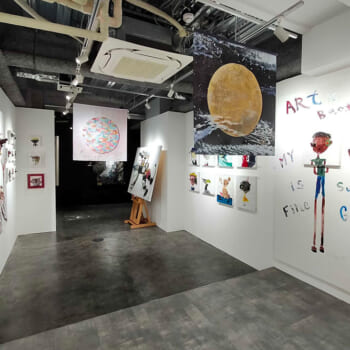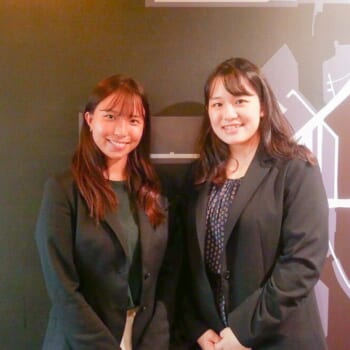![Think about the future of Yokohama with Donut Economics [Experience Report]](https://circular.yokohama/wp-content/uploads/2021/06/Image-from-iOS-64-scaled-e1625557508690.jpg)
Think about the future of Yokohama with Donut Economics [Experience Report]
- On 2022/1/24
On March 20, 2021, we held a workshop on Donut Economics at the Kotobuki Collaborative Space in Naka Ward, Yokohama. 11 participants discussed the future of Yokohama using the concept of Donut Economics with them.
This article is an abstract for the workshop.
*This event is part of Circular Economy Plus School, which is organized by Circular Yokohama in collaboration with the YOKOHAMA Living Lab Support Office and the NPO Yokohama Community Design Lab.
What is Donut Economics?
Donut Economics is a new economic methodology proposed and formulated by Kate Raworth, British economist, in 2011. It is a concept to achieve social justice for everyone all over the world utilizing the limited resources within social and planetary boundaries. This concept is put into the visual framework shaped doughnut.
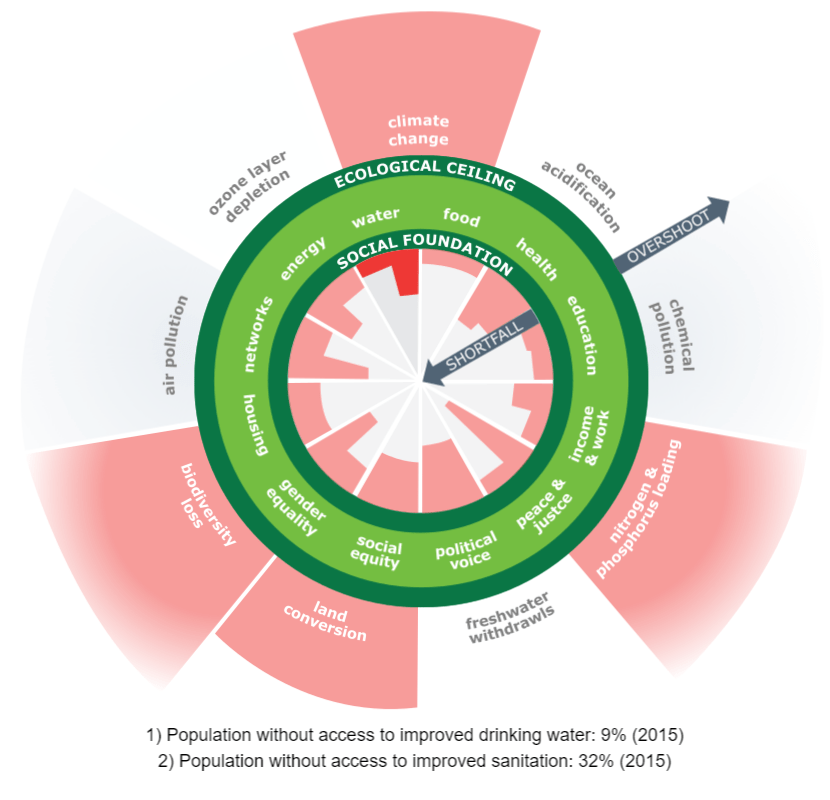
A diagram of donut economics (Reference:https://www.kateraworth.com/doughnut/ )
The outer of the doughnut defines the ecological ceiling, and its inner is the social foundation. Donut Economics aims to realize social justice by keeping all people on earth living between both ceilings.
The city of Amsterdam in the Netherlands is the first city to introduce a Circular Economy strategy that incorporates the concept of Donut Economics.
This time, we organized our workshop based on City Portraits which is the methodology for downscaling Doughnut Economics Amsterdam proposes. We examined local issues and Yokohama’s uniqueness and created our City Portraits.
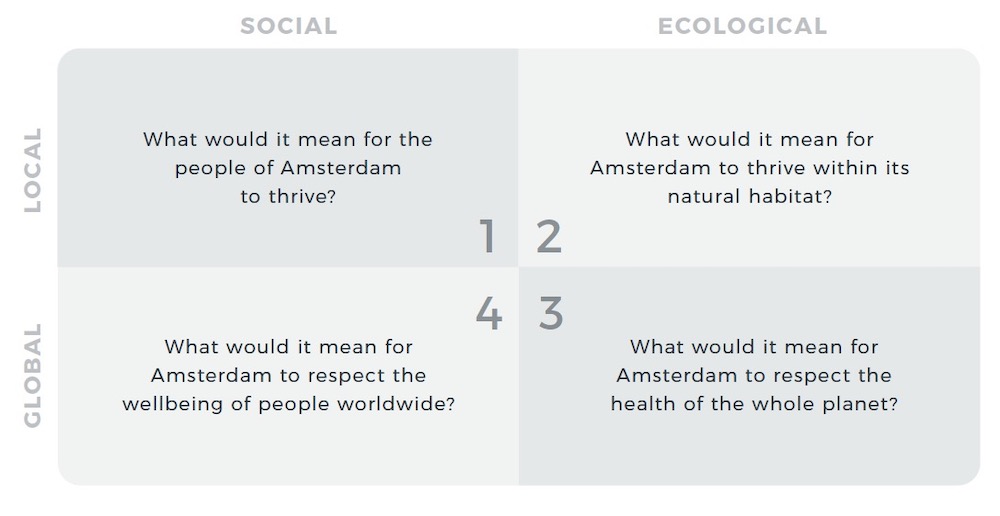
City Portrait adopted by the City of Amsterdam (Reference:https://www.kateraworth.com/2020/04/08/amsterdam-city-doughnut/)
Identify the local issues in Yokohama
In the first half of the workshop, we gave the participants an overview of Donut Economics and explained the current local issues in Yokohama. This time, we focused on three issues facing Yokohama: vacant houses, plastic waste, and food waste.
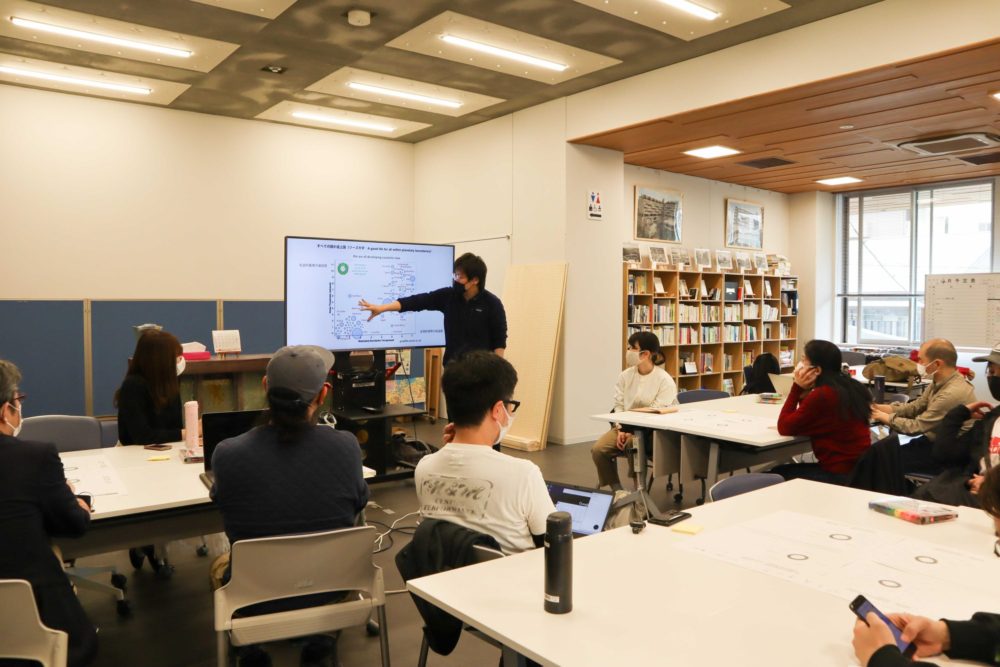
to find solutions to the issues with City Portraits
After the lecture, the participants divided into three groups and broke the necessary elements to fit in the framework.
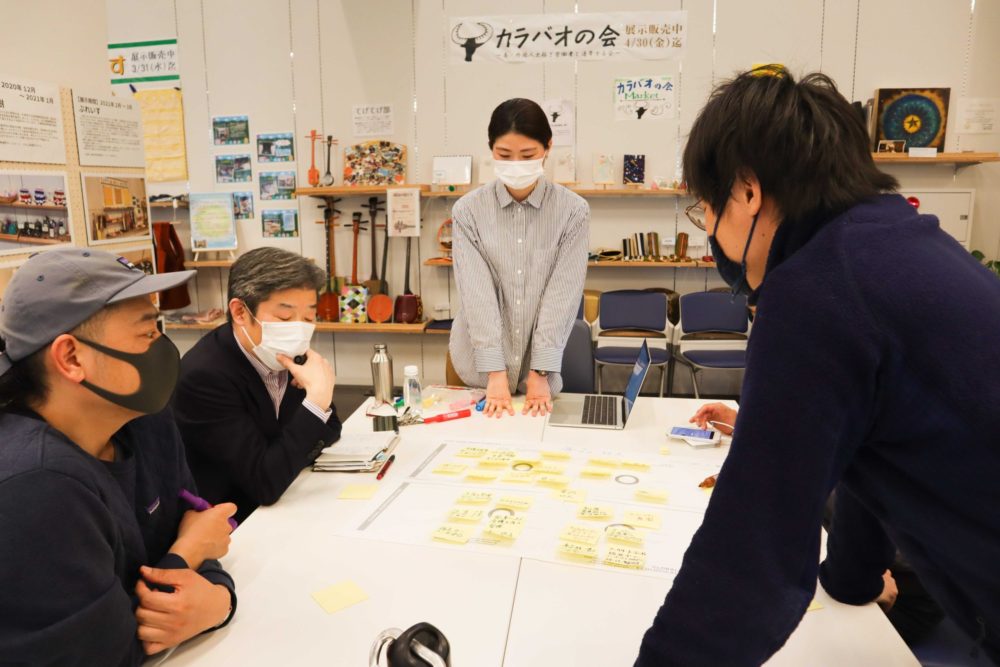
The point of City Portraits is to examine both social advantages and disadvantages.
In the case of vacant houses, demolishing old homes and rebuilding new ones is good because it reduces the number of vacant houses and revitalizes the area. On the other hand, it creates a large amount of waste and causes many carbon emissions when transporting waste and burning it.
Thus, each issue and its solution have both merits and demerits and are intricately complicated.
We first listed up as many possible solutions and considered the advantages and disadvantages of each idea. It is not easy to come up with a 100% environmentally and socially friendly solution. Still, the most important thing is to consider the better solution over pursuing the best one.
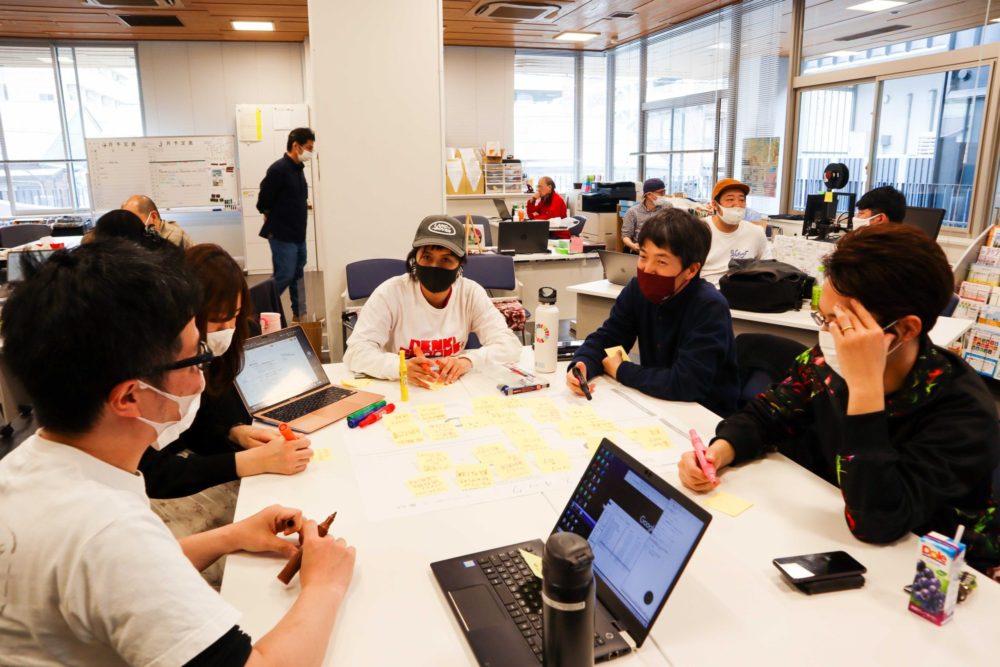
After the discussion, each group gave a presentation of the city portraits they had created.
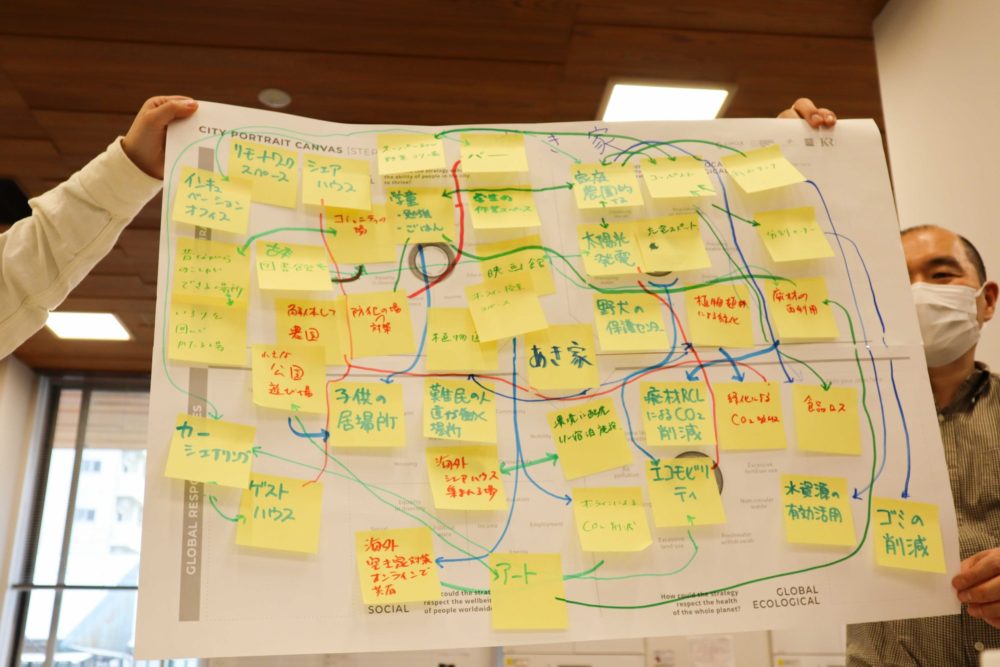
Presentation from the group of vacant houses
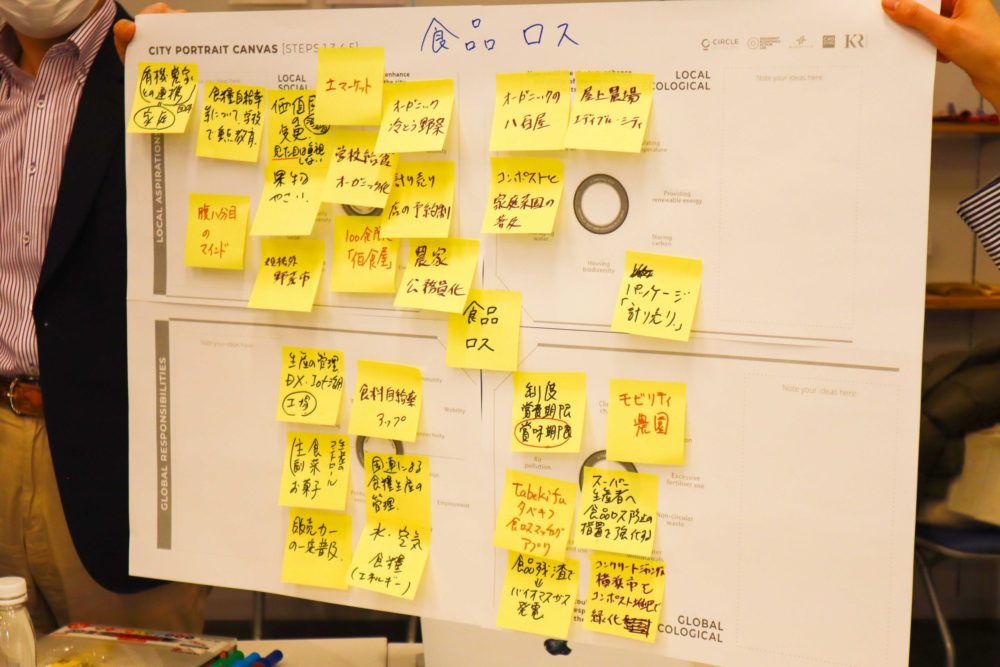
Presentation from the group of food waste
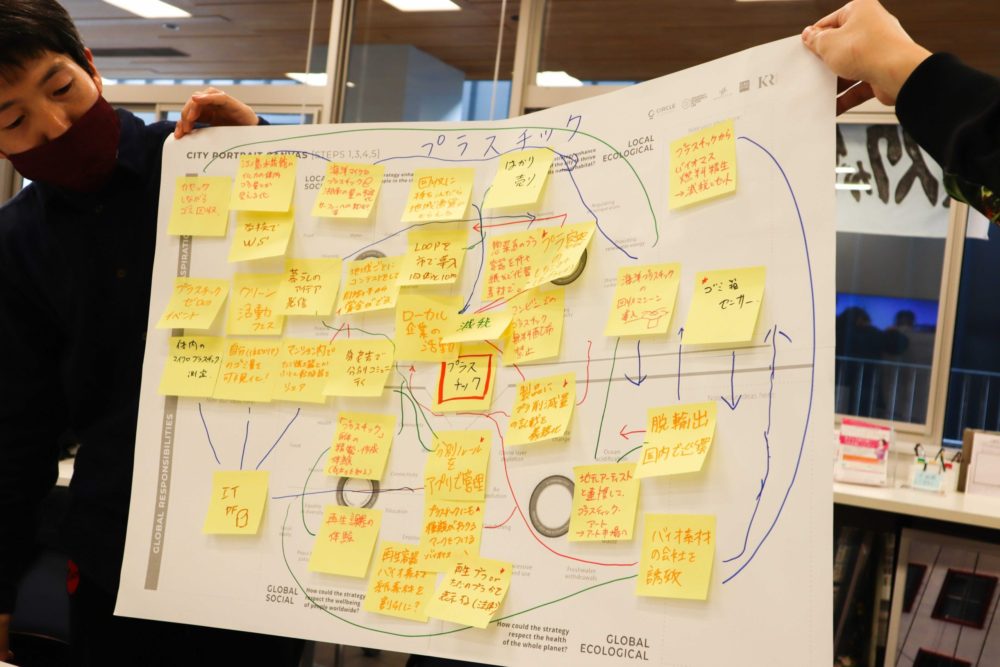
Presentation from the group of plastic waste
Every group analyzed the potential impact both positively and negatively. Not only that, but we also examined it from several perspectives, such as from Japan, other countries, and the entire world. Thereby, we had many ideas using the latest technology and economic system, and they fit in today’s society in the 21st century.
This workshop was a great opportunity for everyone to learn the current circumstance of Yokohama and re-think our local community. We are on the way to realizing the Circular Economy, a sustainable society, and SDGs. Doughnut Economics will hopefully become one of the practical approaches to them.
Editor’s Note
Today’s workshop was the 10th and the last series of Circular Economy Plus school.
Over the past three months, we had looked at Yokohama locally, but this time, we took Doughnut Economics to see Yokohama from a global perspective. I believe it was a new experience for all the participants to objectively consider the future of Yokohama with what they had gained in the previous 9th series.
Circular Yokohama will continue to follow the latest developments of Circular Economy and Doughnut Economics. We look forward to seeing you at our future event!
Circular Yokohama Editorial Team
Latest posts by Circular Yokohama Editorial Team (see all)
- YOKOHAMA CIRCULAR FASHION GATHERING: Envisioning the future of textile circulation across industries [EVENT REPORT] - 2025/12/9
- Harch Inc. is Holding the Release Event for “Sustainable City Guide: TOKYO – Connect with brands and enjoy upcycling! - 2024/8/7
- Basic and collaboration agreements finalized for Yokohama SDGs Design Center Project - 2024/6/21


![Can DX be a solution to the problem with plastic containers? [Experience Report]](https://circular.yokohama/wp-content/uploads/2021/05/shutterstock_525066214-300x200.jpg)
![How can we make a business more sustainable? Find out the way with haishop [Experience Report]](https://circular.yokohama/wp-content/uploads/2021/05/Image-from-iOS-48-300x200.jpg)
![What post-COVID-19 world look like? Circular Economy Plus clear up the new demands in Ryokuen [Experience Report]](https://circular.yokohama/wp-content/uploads/2021/05/FBxDJiOA-300x200.jpeg)
![Yokohama local plastic waste turns out to be a unique asset [Experience Report]](https://circular.yokohama/wp-content/uploads/2021/05/159009092_4137153702984581_8946275429530827838_n-300x200.jpeg)
